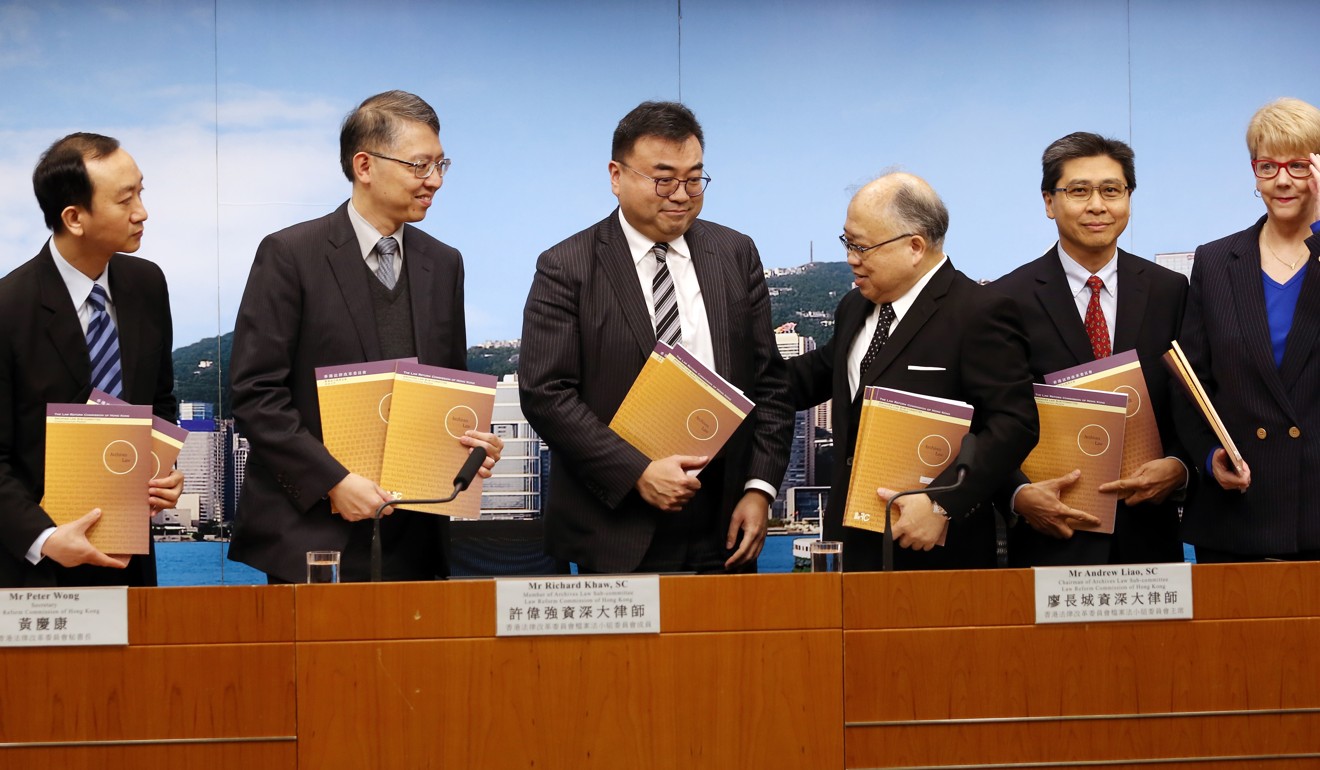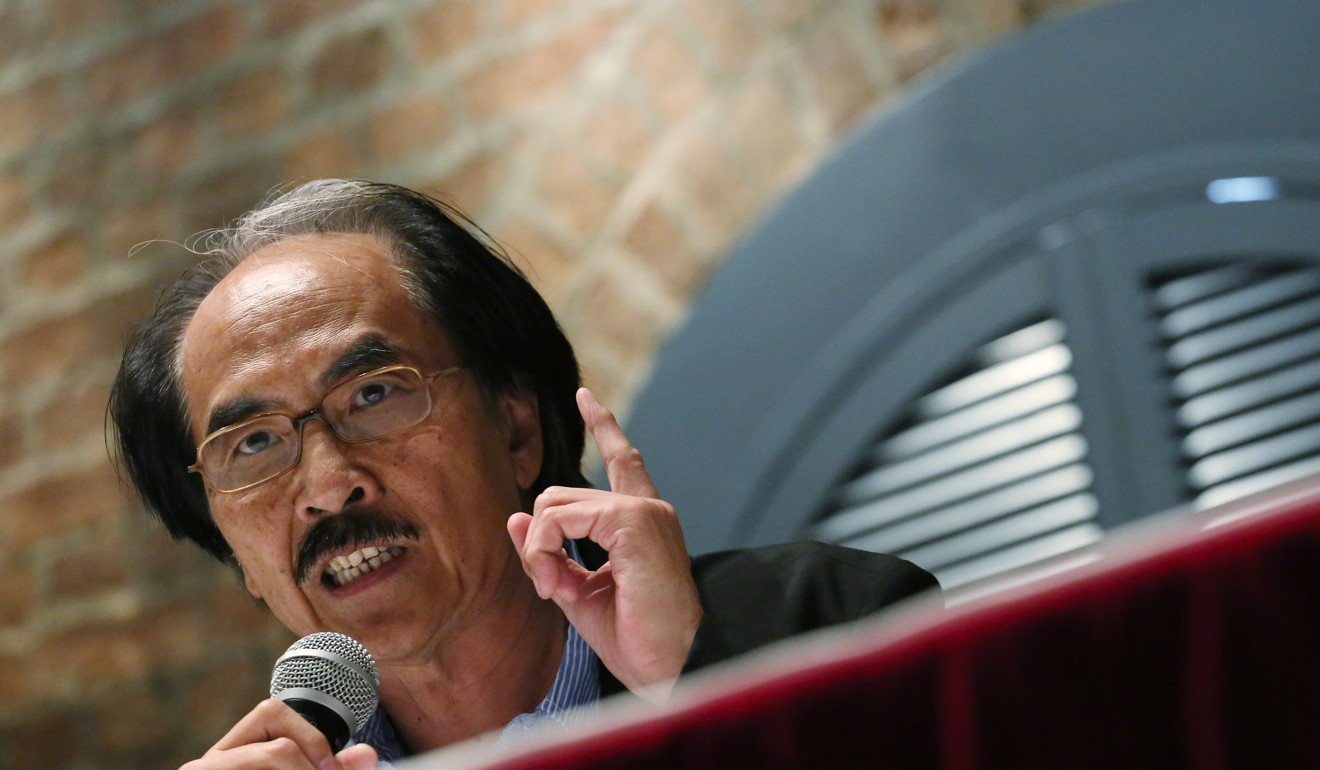
Law Reform Commission urges Hong Kong government to pass law bringing greater transparency to its record keeping
- Government-appointed body finishes five-year study and calls for legislation to improve government record keeping
- Three-month public consultation to begin on proposals published on Thursday
The Law Reform Commission has called on the Hong Kong government to put a law in place to protect public records and archives in the city, after a decade of debate on the subject.
Following a five-year study, the government-appointed body published its proposals on Thursday, and said it saw a need for a law that would bring greater transparency to the system.
“The introduction of an archives law will bring greater visibility, clarity, certainty and transparency to the Government’s records and archives management system,” the commission’s Archives Law Subcommittee wrote in the consultation paper.

“Our provisional views are we do see a case for the introduction of an archives law to further strengthen the management, protection and preservation of public records and archives in Hong Kong.”
The proposals will now be the subject of a three-month public consultation, which ends on March 5.
There is presently no archives law in Hong Kong, and the Government Records Service Division (GRS), under the Chief Secretary for Administration’s Office, is tasked with overseeing the management of archival records with administrative rules.
“One perceived shortcoming is that the GRS lacks effective means to ensure compliance by departments … with the administrative rules which have no legal force,” it said.
Pro-democracy legislators and concern groups have been calling for an archives law for years, with some arguing sensitive documents have been destroyed over the past decade.
It’s now or never for a Hong Kong archives law, as British files reveal
Formed in May 2013, the subcommittee was established after a recommendation from the Chief Justice and the Secretary for Justice. It was tasked with reviewing the regime as it stood, and with studying best practice overseas, in particular in Australia, England, Ireland, New Zealand and Singapore.
The commission will now wait for public feedback on whether the city needs an archive law, whether government’s disciplinary measures are sufficient to deal with any lost records or unauthorised destruction, any needs for the appointment of an advisory body overseeing archival management, and concerns on privacy and data protection.
Noting that a good public records management regime must include “adequate and effective measures to ensure due compliance”, Andrew Liao Cheung-sing, chairman of the subcommittee, added that the morale of civil servants was important as well when considering whether to criminalise any misconduct in handling government records.
Under the current rules, government records reaching 30 years old should be transferred to and appraised by the GRS to determine whether they possess archival value for permanent preservation.

The subcommittee is also seeking public views on whether to shorten the 30-year time frame for releasing records as most other countries do, and whether public bodies should be covered under the law. Regarding the scope of public bodies to be covered, Liao said they believed a “bespoke” approach would be more appropriate.
Simon Chu Fook-keung, who retired as director of the GRS in 2007 and then established an action group calling for an archives law, stressed the importance of imposing penalties for any violation in record keeping.
“It must come with criminal sanctions. If not, it would just become a toothless law that allows great discretion for civil servants to determine which records to destroy, or not,” Chu said.
Liao added that the subcommittee would further study the public opinion collected after March and then hand in a report to the Law Reform Commission, which would approve and pass it to the government for reference.
“The final decision is always in the hands of the government,” he said.
Greater push for archival law for more transparency
There have been calls for enactment of an archives law for many years. In 2011, the government admitted it had destroyed documents equivalent to almost three times the height of the Two IFC buildings before it moved into its new Admiralty headquarters.
The revelation prompted questions on whether the destruction involved valuable data, as Hong Kong’s document-saving rate of 0.03 per cent in 2011 is far lower than the international practice of 3 to 10 per cent.
The Ombudsman released its investigation report in 2014, and urged the administration to seriously consider introducing such laws.
Chief Executive Carrie Lam Cheng Yuet-ngor pledged during her campaign to implement archive law. In her latest policy address in October, she said the government attached importance to the integrity of government records and held a positive view towards the enactment of an archives law.
Chu earlier noted that as the law was used to restrict the officials and government, the government was reluctant to act and push ahead with the legislation.

